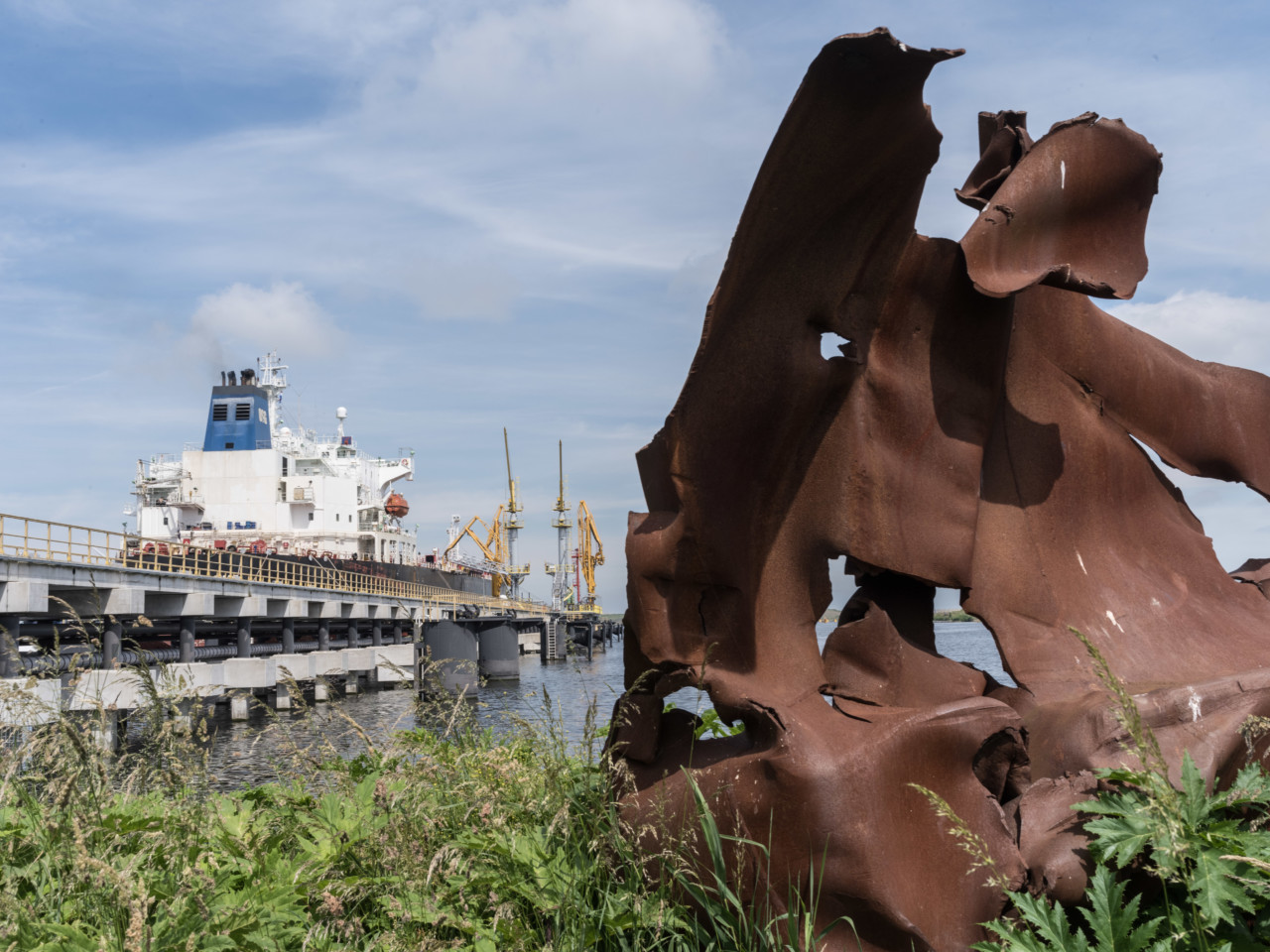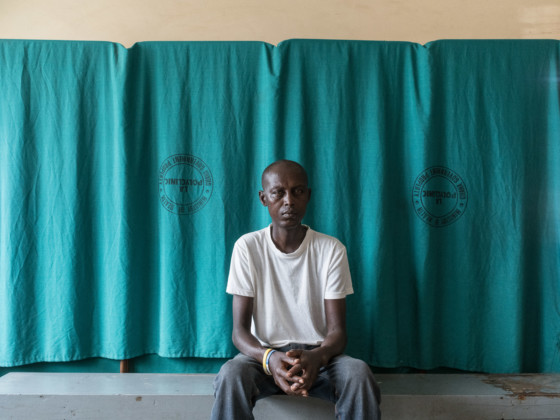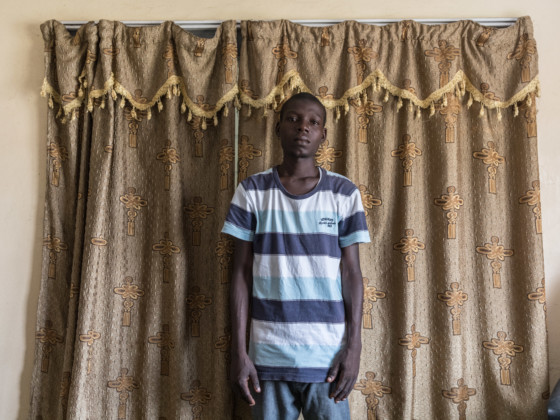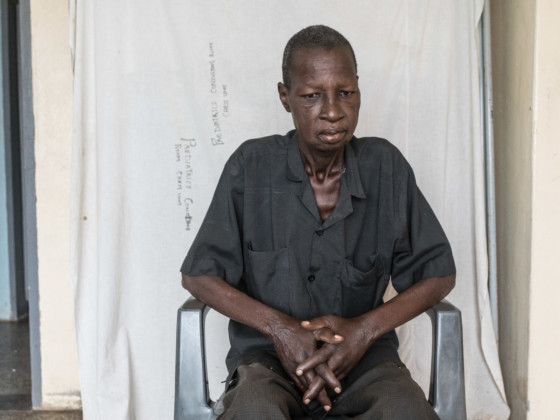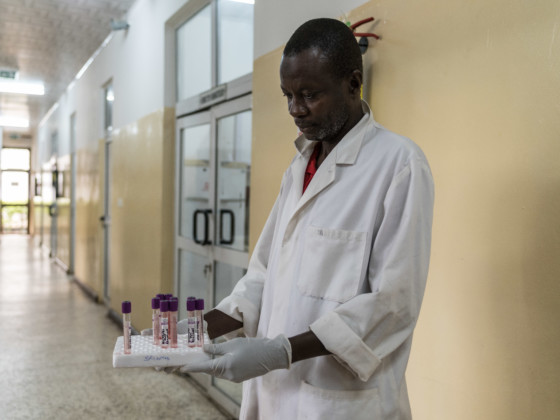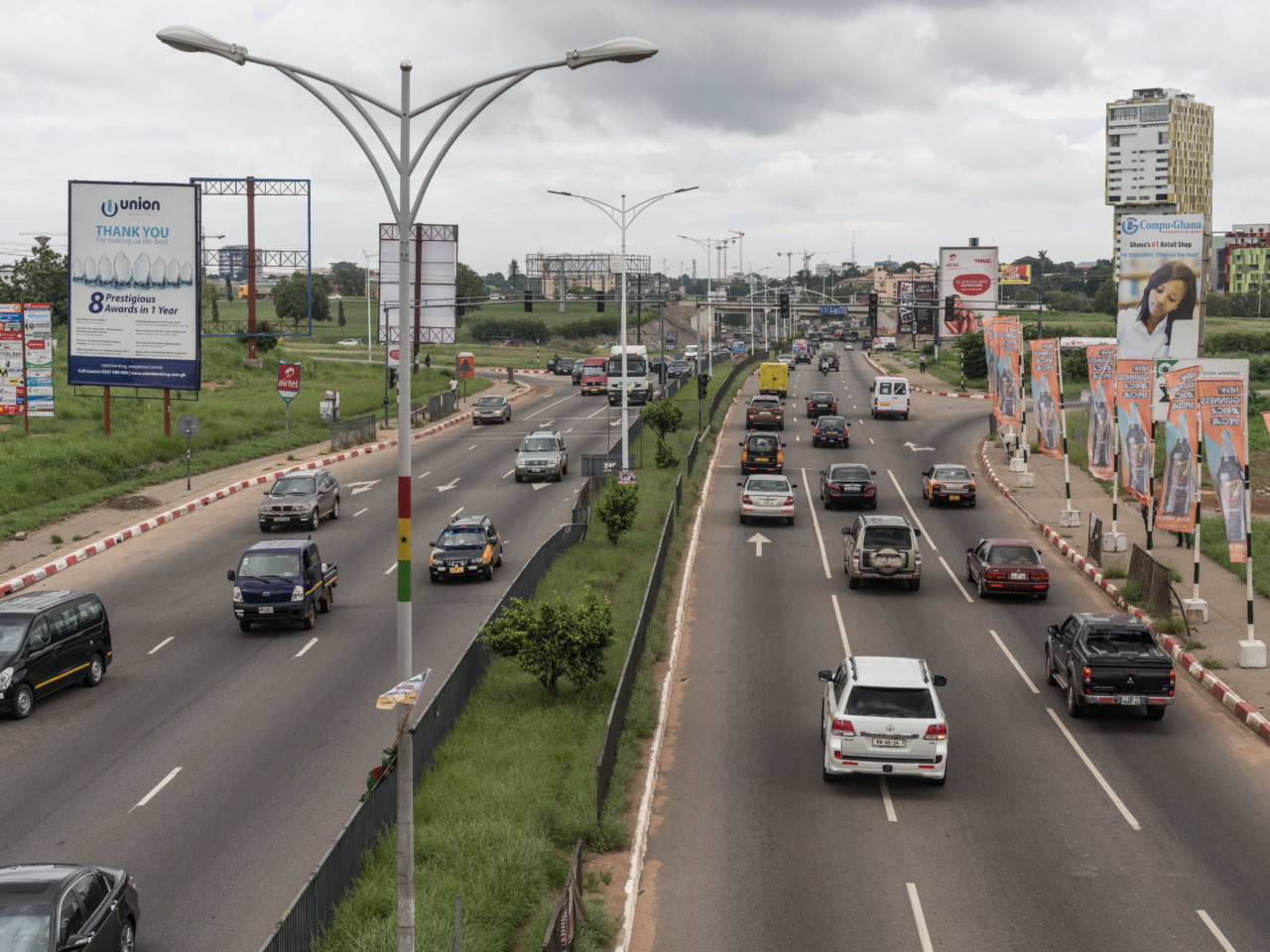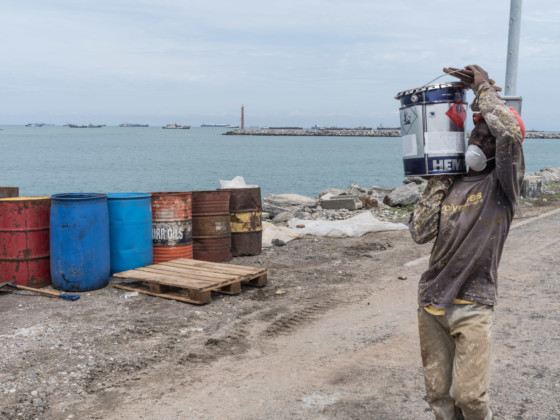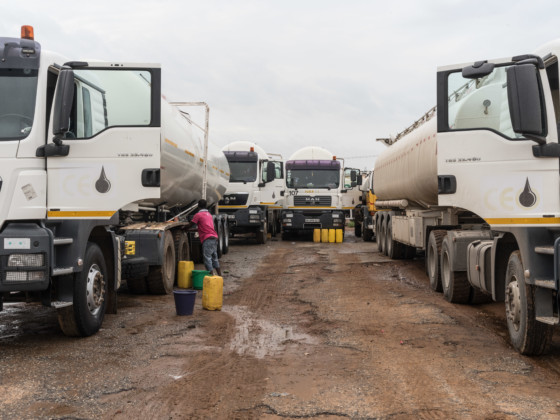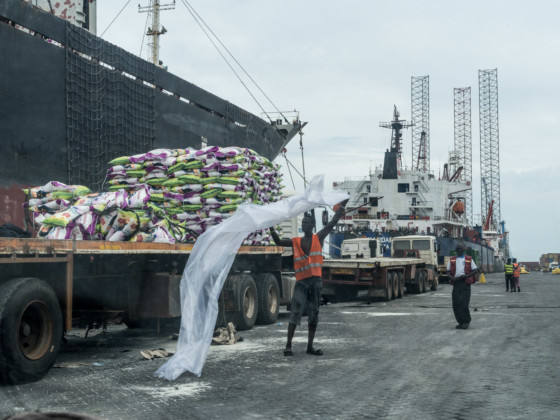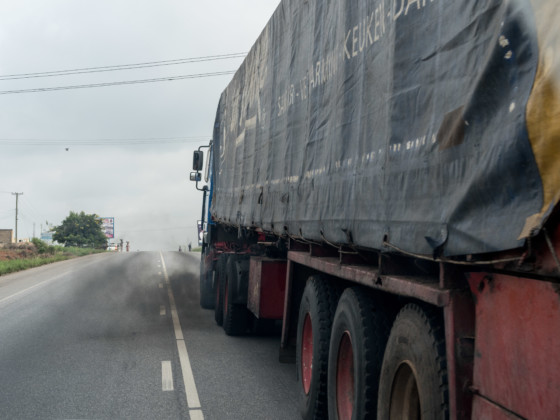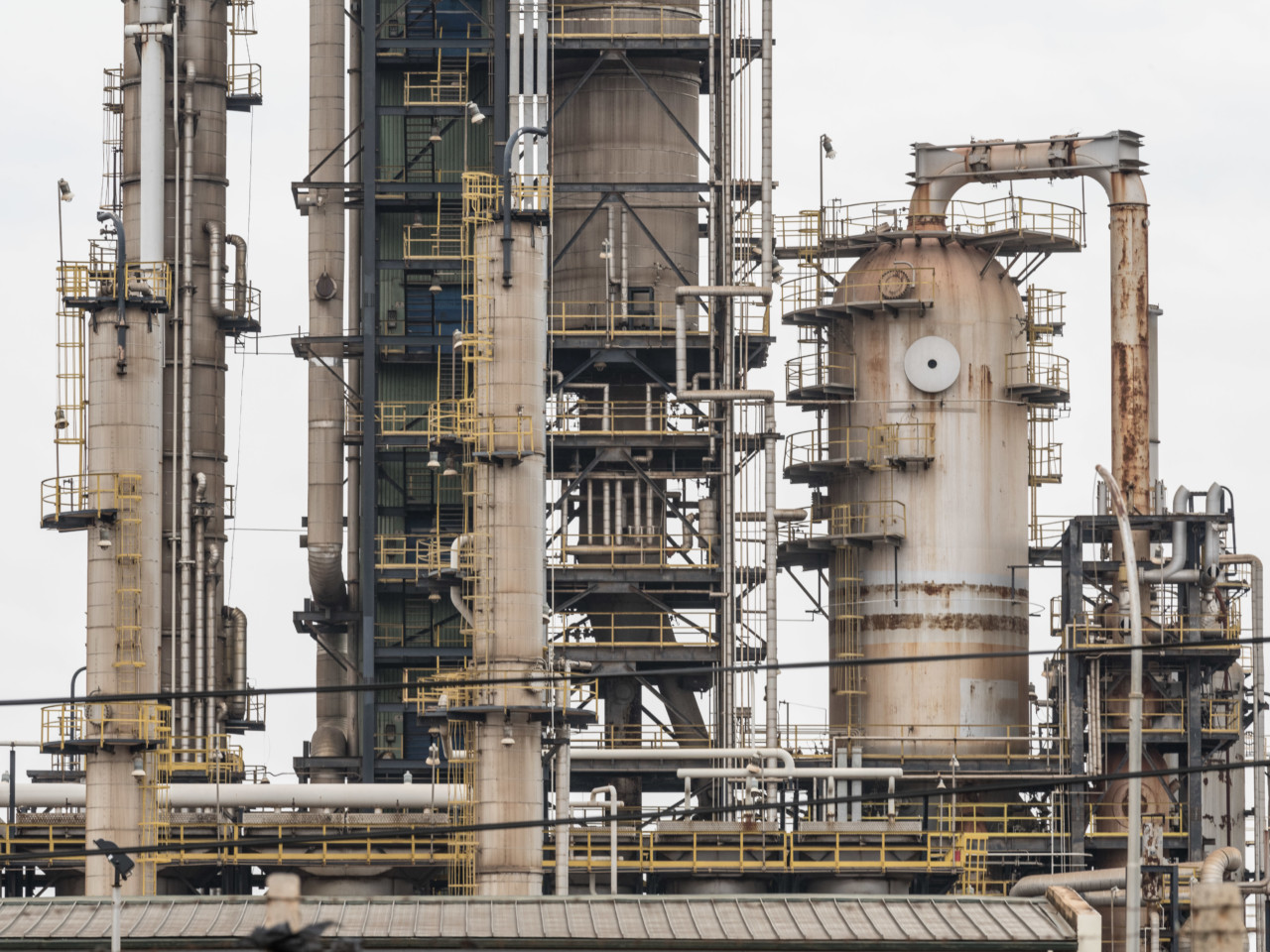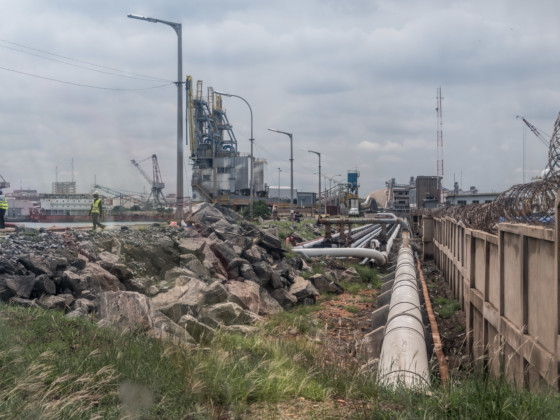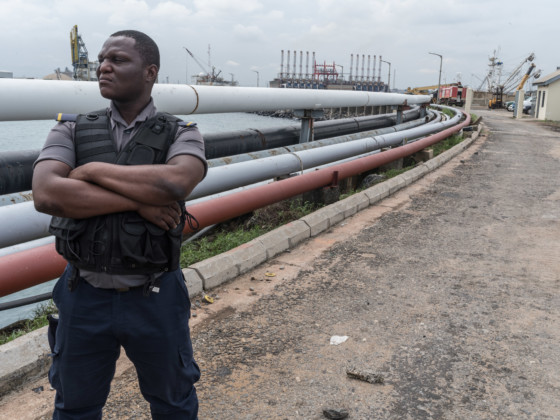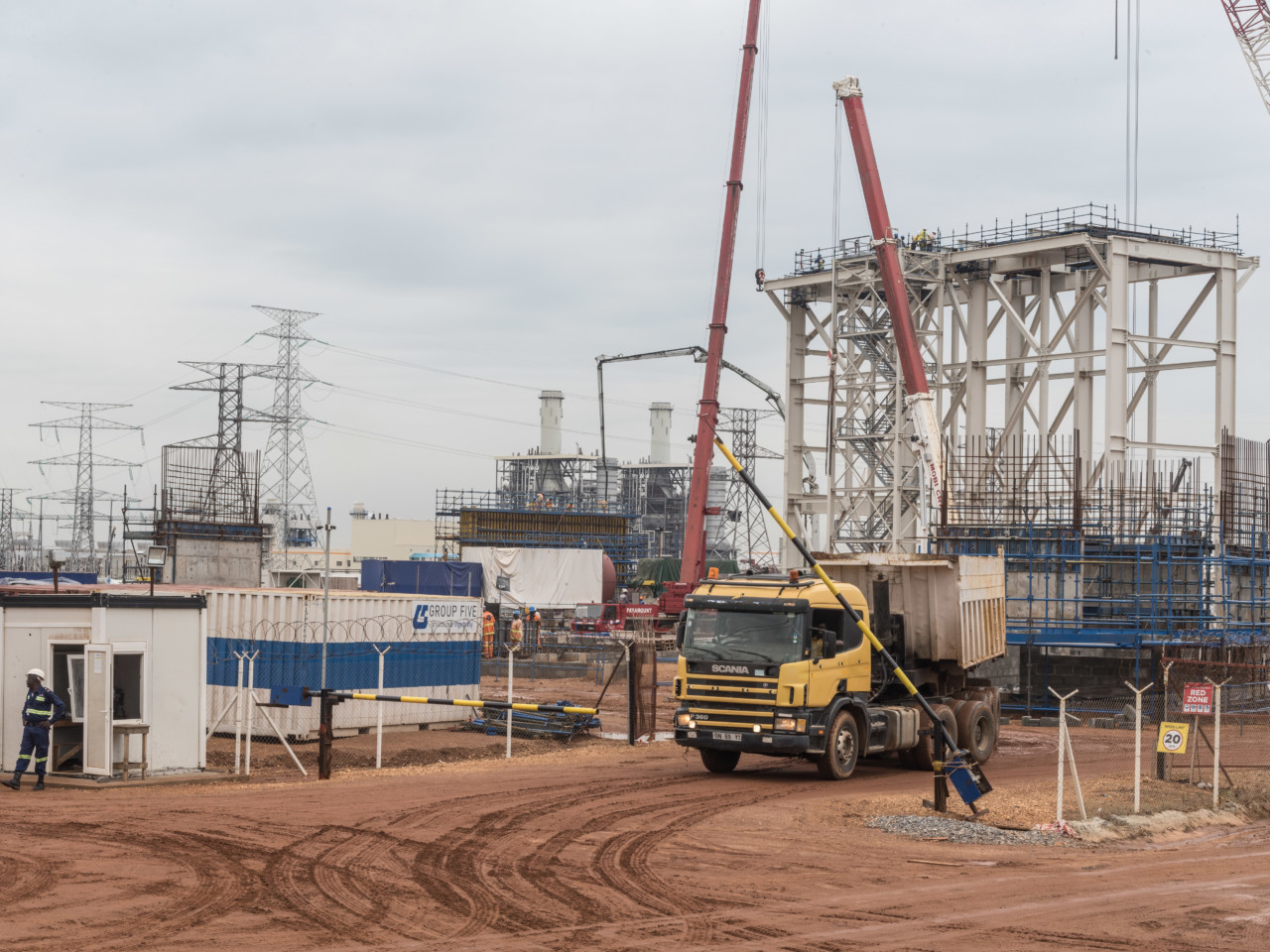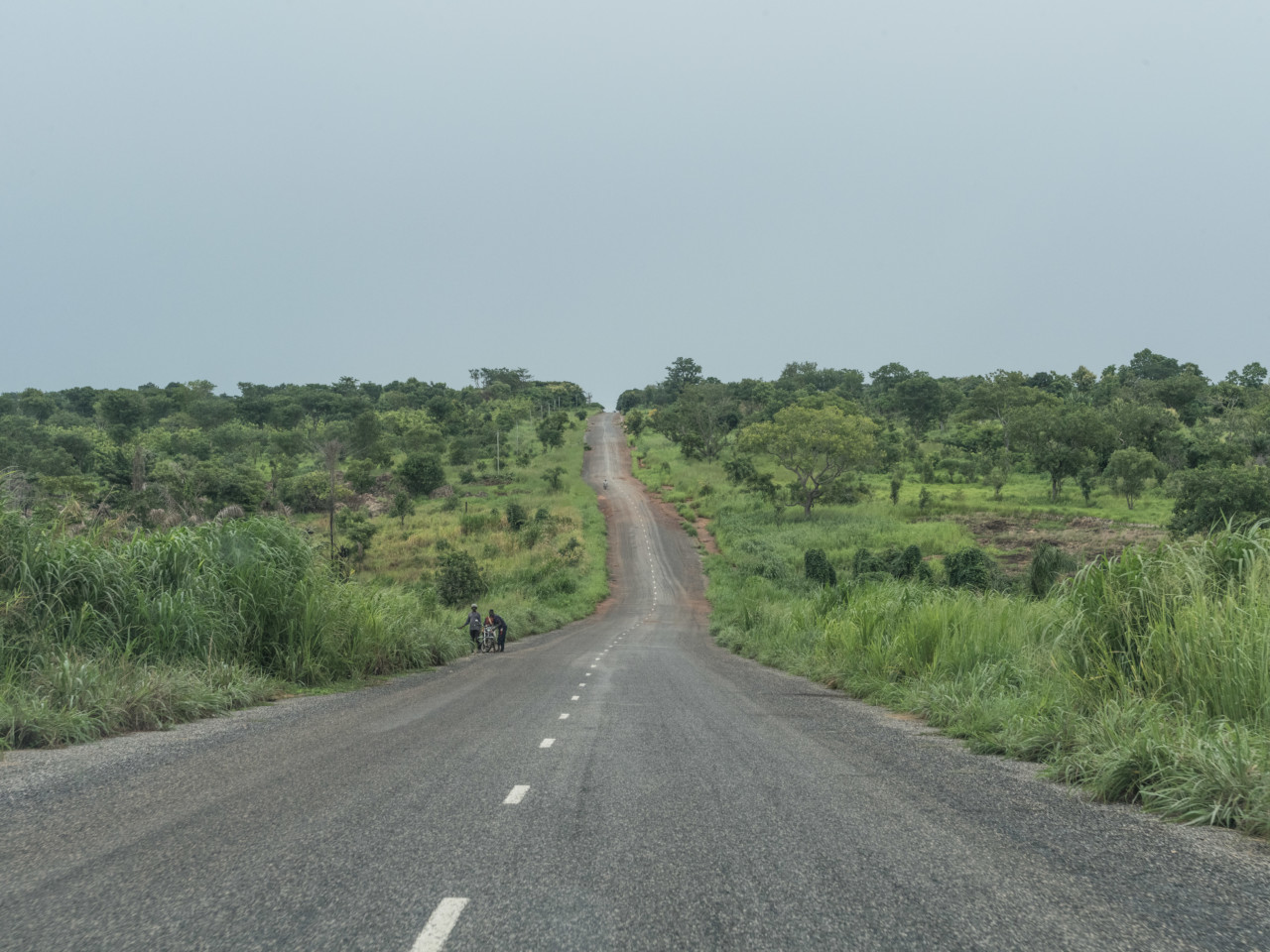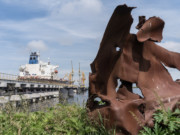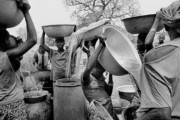Double Standards
A new report exposes the health and environmental impact of the legal practices that allow for poorer-quality fuel to be sold in Africa
Today, Swiss-based NGO Public Eye – formerly known as The Berne Declaration – has published a report exposing the way commodity trading companies leverage west Africa’s lower fuel standards to sell lower quality diesel and gasoline, which are damaging to people’s health. Magnum Photos has had exclusive access to the report, sending Carl de Keyzer to illustrate its findings.
Oil companies extracting oil in west Africa and refining it in Europe are using a practice known as ‘blending’ to make cheap but toxic intermediate petroleum products known as ‘African Quality’ fuels. They are then sold back to oil-producing African countries with much higher levels of sulphur than would be permitted elsewhere. In west African countries in particular, permitted levels of sulphur are much higher than in Europe, which has tighter controls over fuel emissions.
To illustrate the report, Magnum’s Carl de Keyzer travelled to Ghana to photograph the effects of this fuel, witnessing pollution and the effects on people’s physical health. Sally Hayden reports:
It’s widely considered Africa’s strongest democracy, propped up as a shining pillar of stability on a continent where conflicts and dictatorships are prevalent. However, there’s another powerful current essential to fully understanding Ghana’s fortunes: the secret story of its fuel. In capital city Accra the noises of cars and smells of vehicle fumes are a constant – pollution cloying the air, inhaled by passengers stuck in traffic jams and the hawkers who sell wares by the roadside. The pace of development in the flourishing city means more vehicles on the road, and when drivers fill up their tanks, they are filling them with fuel that is much more dangerous to their health than if they were in a European city, often unsure about the quality of the diesel they are putting into their cars.
An investigation undertaken by Public Eye (previously Berne Declaration) and illustrated by Magnum Photos has gone inside this ubiquitous but under examined influencer of Ghanian life: the country’s fuel industry. After visiting the country and gaining access to exclusive documents, Public Eye’s investigation has traced the route of diesel from European ports to Ghanian pumps. Tests carried out by Public Eye between November 2012 and February 2016, the results of which are published in the report, shows that sulphur levels in fuel found in pumps in Ghana vary; some have levels of sulphur that are much greater than fuel importers have claimed.
"On average, African sulphur limits for diesel are at least 200 times higher than European limits – rising to as much as 1,000 times more in particular countries"
-
A Short History of Ghana and its Oil
To understand the impact the control and supply of fuel is having on Ghana, an observer must understand some of the country’s history. A former British colony, it achieved independence in 1957. Since 1993, the west African country has operated with a successful two party political system, where presidential term limits have been adhered to and power has been transferred peacefully.
The country’s burgeoning population has now reached above 27 million, with increasing numbers of citizens flocking to cities, including the capital Accra. The discovery of oil in the Jubilee Field off Ghana’s coast was expected to bring in as much as $1 billion annually. When pumping began in 2010, Ghana’s late President John Atta Mills warned that this production “means that we are assuming a very serious responsibility. And especially for those who are in leadership positions, we must ensure that it becomes a blessing not a curse.”
However, anticipated benefits have failed to fully materialize, and the economy is currently in a difficult place – with high inflation and a struggling currency. Debt has risen constantly in recent years, placing it among the highest levels in Africa.
Public frustration has this year resulted in mass protests, participants focusing on the significant increases in petrol, water, and electricity costs, without a coinciding rise in wages. With elections later this year in which the ruling National Democratic Congress are hoping for an unprecedented third term, attention is turning to what can be done to better improve living situations for Ghanians.
Amid all of this, diesel sulphur levels might seem marginal, but they are part of a greater narrative which seeps into public life, demonstrating the extent to which Ghana seems unable to take control of its own fuel industry, while profits continue to be hemorrhaged abroad.
"It is very risky to allow individuals or certain groups of people to dominate the petroleum sector, which restricts competition and eventually makes Ghanaians just pawns in the game"
- John Attafuah, former NPA CEO
“African Quality”
The investigation by Public Eye found that European corporations are using a process known as blending to create what’s referred to as “African quality” fuel – referring to the fact that most African countries still lack legislation banning the use of high-sulphur diesel and gasoline. On average, African sulphur limits for diesel are at least 200 times higher than European limits – rising to as much as 1,000 times more in particular countries.
High sulphur content is damaging to the environment and local populations on several levels: not only does it have severe impact on health, but it also actively destroys emissions control technologies in vehicles. While West Africa is a significant producer of crude oil, it lacks refining capacity, meaning roughly half of its gasoline and diesel is imported, usually from Europe and the US.
Of the spread of countries between Angola and Senegal, the investigation found that Ghana is the largest market for petroleum products, and receives the largest quantity of high-sulphur diesel directly from Europe’s Amsterdam-Rotterdam-Antwerp region. When these shipments arrive in the region, their quality is so low that they must occasionally undergo further blending to meet even Ghana’s relaxed national requirements – which allow for 300 times more sulphur than European countries.
The Petroleum Products Import Business
In Ghana, as in many other countries, the business of importing petroleum products is lucrative, strategic and politically sensitive. The picture Public Eye has managed to paint of the fuel industry points to a closed shop.
Local laws require Ghana’s fuel importers – known as bulk distributing companies – to be indigenous. However, all this means is that a Ghanian company needs to team up with international trading companies – usually Swiss – that are willing to provide them with imported fuel and cheap credit. Public Eye’s investigation found these companies are highly organized, functioning as a powerful lobby. This leaves them well equipped to take advantage of a growing need for fuel which has seen Ghana’s diesel consumption jump 64 percent between 2010 and 2012, according to Public Eye’s report.
In 2014, the country met demand by importing more than 3.2 million tones of petroleum products, worth billions of dollars. According to statistics produced by the National Petroleum Association (NPA) – the group that grants importing licenses – nine of the 29 certified importers accounted for 88 percent of the market that year. The same year, of the four market leaders supplying over half of Ghana’s needs, three were operating in partnership with Swiss companies.
John Attafuah, a former NPA CEO – recently warned about the risks of this level of concentration in the industry. “It is very risky to allow individuals or certain groups of people to dominate the petroleum sector, which restricts competition and eventually makes Ghanaians just pawns in the game,” he said, adding that the NPA should “ensure that no player in the field is given an unfair advantage to the extent that it becomes a monopoly or cartels form, especially when politicians become the unseen hands of these industry players.” Attafuah continued: “Decisions are not made in the boardrooms but behind the scenes. Therefore nobody gets to know what is going on. It’s just politicians deciding what to do with the industry so that they can make money.”
Perhaps the most striking symbol of the struggle of the domestic industry is that of Ghana’s only refinery. Located in the coastal city of Tema, the Tema Oil Refinery (TOR) has been operating since 1963 – just six years after independence and almost 40 years before crude oil was first drilled in the country. Functioning at full capacity, the facility should be able to provide roughly 40 percent of Ghana’s domestic fuel demand. Two years ago, the state-owned company was producing just 3.5 percent of Ghana’s fuel needs. It resumed operations again in early 2016, though remains on insecure ground.
While managers refused to speak to Public Eye about obstacles facing the facility, other knowledgeable sources shed some light on the situation. “TOR faces two main challenges,” said one person from the NPA, who asked to remain anonymous. “Banks don’t want to lend it money to buy crude, as it is severely indebted. And it makes losses in terms of production.”
These production losses occur because the state-owned refinery was forced until mid-2015 to sell products at a price set by the NPA. The lack of revenue led to a downwards spiral: it began to lose both money and access to credit. The subsequent halt in production meant it made more sense for TOR to lease its depots to importers – something the local press has been highly critical of, referring to a “political sabotage” of the refinery.
"Carl De Keyzer’s pictures taken in Accra, Tema, and elsewhere in Ghana show the discord at play: belching fumes juxtaposed with green countrysides"
-
Limited Accountability in Ghana
The under-utilized facility is a symptom of the “Nigerianization” of Ghana, one European diplomat said, referring to the mass fraud that has plagued Nigeria’s power supply, import sector, and refineries. He emphasised that in Ghana too there is limited accountability. The diplomat, who is based in Accra, said the same fate had been suffered by the country’s power plants: “The electric facilities are being damaged by the BDCs’ mafia so that they can import more for diesel powered generators.”
Two of Ghana’s three natural gas power plants were sabotaged immediately prior to opening, the diplomat said. The West African Gas Pipeline, through which Nigeria supplies Ghana with natural gas for power, is often sabotaged too. Raj Kulasingam, a power specialist at Dentons in London, described to Public Eye the “pilferage and vandalism” on the transmission networks in Ghana. Regular power cuts have led locals to disparagingly nickname their electricity supply “dumsor”, meaning “on and off”.
As a result, those who can afford to rely on diesel-run generators for their electricity. “First of all this is expensive,” explained Kulasingam. “Diesel is 20 percent or 30 percent more expensive than most other fuels… Also, generators are noisy and produce a lot of smoke, entailing noise and air pollution.”
At a workshop organised in September 2012 by the United Nations Environment Programme (UNEP) and Ghanaian authorities and titled “Cleaner fuel for public transport”, the standard sulphur limit for fuel was lowered from 5,000ppm to 3,000 ppm. However, despite this result, the public relations campaign being waged by importers’ lobby group the Ghanaian Chamber of Bulk Oil Distributors was blatant. Representatives claimed they import diesel with an average 1,000 – 1,500 ppm sulphur content – contrary to statements from the Ghana Standard Authority (GSA) and studies carried out by Public Eye, which both say the average for all cargoes was two to three times higher.
The lack of transparency and lack of incentive to improve the quality of the fuel concerned many people Public Eye spoke to. “No one knows what is going on in [fuel companies’] storage,” said a source from the Ghana Standards Authority. “As private players, they conduct their own testing and no neutral person is involved. Certificates have been forged before.”
He said that with such an opaque system, the lines of culpability can be incredibly difficult to define. “Most often, a small employee of the lab is corrupt rather than the company itself. He mixes samples, for instance. Storage owners also sometimes deliberately lower the quality of the original product by blending in tanks.”
In the meantime, profits continue to be sucked out of the country “by compromising the health of the population of Ghana”, said Dr Reginald Quansah of the University of Ghana’s School of Public Health. “The BDCs are putting the lives of many at risk, but I am not surprised – they do what they need to do to make profits,” said Dr Kwaku Poku Asante, Head of Research at Kintampo Health Research Centre.
Carl De Keyzer’s pictures taken in Accra, Tema, and elsewhere in Ghana show the discord at play: belching fumes juxtaposed with green countrysides; dirty skies hanging above uniformed workers who rely on the fuel industry to make a living.
Also pictured is the human cost: patients at La General Hospital, including, Addo Abbey, 34, a taxi driver with tuberculosis of the lung, and 27-year-old Emmanuel Amuzu Kpakpo, another driver experiencing difficulty breathing.
In a country facing economic challenges, a growing population and high levels of unemployment among youth, diesel may seem ubiquitous, its presence a welcome sign of industrialization and progress, but De Keyzer’s photos powerfully convey some of the accompanying complications.
These were also summed up by many interviewees, perhaps most succinctly by former refinery worker and consultant for the African Refiners Association Emmanuel Quartey. “If we don’t move on standards, we will remain the dumping place for bad European products,” he said.
Sally Hayden is a freelance journalist based in London. She has worked for VICE News, CNN International, the Financial Times, the Thomson Reuters Foundation and the Irish Times, and reported from countries including Rwanda, Burkina Faso, Malawi and Ethiopia. Most recently, she’s been covering the conflict with Boko Haram in northeast Nigeria as well as the refugee crisis in Europe – reporting from France, Germany, and the UK.


